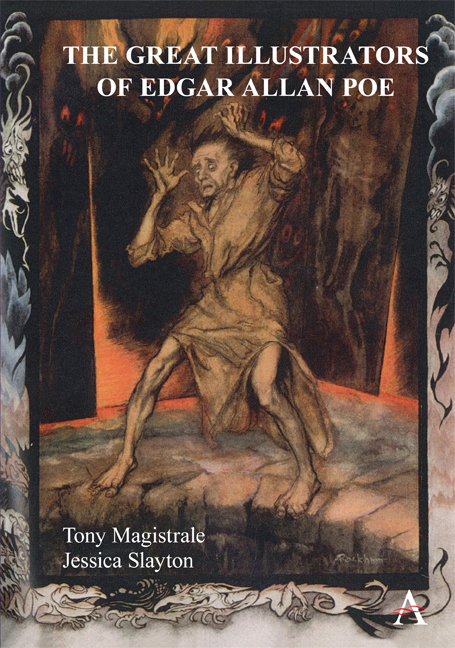1 - The French Poe
Published online by Cambridge University Press: 04 June 2021
Summary
In “The Philosophy of Composition,” one of the great essays in American literature and a key to comprehending the romantic sensibilities of Poe's work, Poe ostensibly sought to explain the process that resulted in his famous poem “The Raven.” In “The Philosophy of Composition,” Poe managed to discuss more than just “The Raven,” as he also speaks indirectly about his efforts to dignify the importance of the short story genre, which in his lifetime had only recently been invented, and that Poe himself refined to the point where it became the basis upon which his reputation would eventually rest. Whether considering poetry or fiction, Poe believed that “if any literary work is too long to be read at one sitting, we must be content to dispense with the immensely important effect derivable from unity of impression— for if two settings be required, the affairs of the world interfere, and everything like the totality is at once destroyed” (Poe, Poetry 1375). Poe's emphasis here is of course on the value of brevity. But brevity is directly relevant to what Poe viewed as paramount to establishing the principles of unity and effect, which, in turn, would give rise to “the contemplation of the beautiful” (1376). Unity, effect, and beauty, however we choose to define them within a Poe context, were central to establishing what the writer felt to be an all-important bond between reader and author, whereby the former is transported into the multiverse of the latter's creation.
The illustrators who were attracted to Poe's work, regardless of the degree to which they were conscious of their aesthetic principles, were at the very least practitioners of the writer's emphasis on the importance of brevity. After all, the illustrator's job is to render into a single image a memorable— often climactic— instance from a given work: the sudden appearance of Ligeia's “huge masses of long and disheveled hair blacker than the wings of midnight” (Poe, Poetry 277) on the occasion of her reemergence from the shrouded body of Rowena, the narrator's physical and psychological distress when it reaches the point in “The Tell-Tale Heart” when he can no longer contain his homicidal secret from the police, the exact moment when the inebriated Fortunato obtains sufficient clarity to realize that his own immobilization and interment is not a joke he will live to “laugh about at the palazzo” (854).
- Type
- Chapter
- Information
- The Great Illustrators of Edgar Allan Poe , pp. 13 - 52Publisher: Anthem PressPrint publication year: 2021



